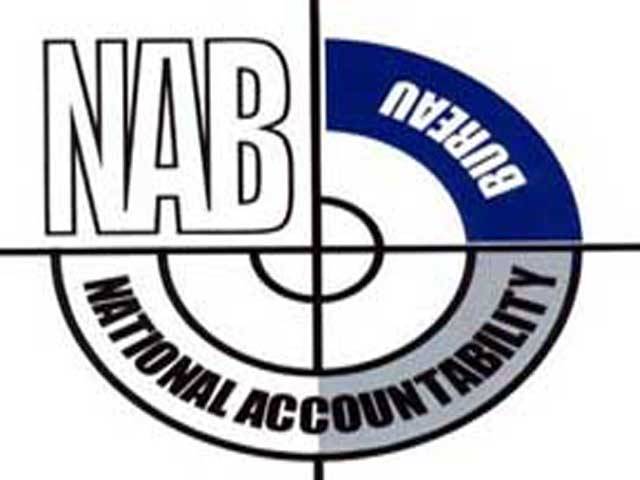ISLAMABAD – The country’s top anti-corruption watchdog has announced countrywide arrests of power defaulters who owe a total of Rs166 billion to the electric supply companies.
Talking to select journalists in his office on Thursday, National Accountability Bureau (NAB) Chairman Admiral (r) Fasih Bokhari said the hunt would start from April 20.
Out of the total outstanding amount, Rs110 billion were payable by such defaulters as have to pay more than Rs0.1 million each, Bokhari said while admitting that there was worst kind of corruption in country’s power sector.
The bureau has asked all the defaulters to pay their outstanding dues until April 19, after which arrests would be started, he said, adding that NAB had established its cells in the offices of all the power distribution companies (DISCOs) in this connection.
The NAB chief said they were investigating 12 cases regarding RPPs and he had directed all the officers to complete the probes at the earliest. The final decision would be taken thereafter and the bureau would go ahead with only those cases in which it would have sufficient evidence to prove the charges in the courts, he said. He also told that NAB was investigating two fresh cases about corruption in National Logistic Cell (NLC).
Fasih Bokhari revealed that they have a plan for post-election scrutiny of the nomination papers of all the elected members of national assembly, senate and provincial assembles but that would be conditional with the permission of Election Commission of Pakistan (ECP). He viewed that instead of wasting energies and resources on all the contestants, it would be more beneficial to only scrutinise the nominations papers of those candidates who would get elected. At this stage, he said, NAB has provided the lists of all the convicted persons from accountability courts to the commission.
Bokhari said that the bureau under his chairmanship had focused on development projects of worth 1.5 trillion under its prevention program and the amount was got reduced to 1.3 trillion after the bureau pointed out irregularities before their start. “We have directed the Planning Commission of Pakistan to give all the details of the projects conceived by it in this regard,” he said.
He argued “We are more focused on prevention than enforcement... because I personally believe that instead of running after corruption, it should be prevented before it occurs.” He stressed that corruption was neither party specific nor event specific, nor form of government in Pakistan but there were systematic flaws — both constitutional and regulatory. According to Transparency International Pakistan, Pakistan at CPI index of corruption always remained at around 2.5, however the rating increased recently because some new countries were included in that list that had better position than Pakistan regarding corruption, he maintained.
“In petty corruption, bureaucracy shakes hands with the private sector while grand corruption always occurs at policy making level,” he said, adding that private sector could not be disturbed because it was a growth engine but reforms would have to be introduced to make the bureaucracy independent and get it out of the influence of politicians. “We have to prevent the bureaucracy from making shady deal,” he said.
The NAB chief said a committee of the bureau comprising of seven secretaries of Grade 22 was working on Civil Service reforms. To prevent corruption, financial powers would have to be devolved at union council level as centralisation of federal consolidated funds and provincial accounts were a major source of corruption, he said.
Bokhari said that Establishment Division should be independent from the influence of the prime minister. “We used to call bureaucrats to have their presentations on different projects under the prevention regime and they get relief from their political bosses because they have a reason to say ‘no’ to illegal orders,” he said. The NAB chairman said that he had opposed the proposed National Accountability Commission on the grounds that the existing NAB having strong laws was the necessity of the time.
Responding to a question about the issuance of contempt of court notice to him by the Supreme Court for writing a letter to the president, he said, if the court decided that he should be removed, he would follow the court orders. He said it was a settled principle of law that investigations were not monitored and he wrote the letter understanding that the NAB investigations process was being affected.
To another question about the general perception that NAB remained pro-government during previous regime, he said this was because they focussed on prevention instead of enforcement; if they had used the latter tool against corruption, they would have been facing allegations of political victimisation.
Friday, April 19, 2024
NAB to net Rs166b power defaulters

Iconic actor Muhammad Ali being remembered on birth anniversary
10:02 PM | April 19, 2024
Death anniversary of Urdu writer Imtiaz Ali Taj today
10:01 PM | April 19, 2024
Umer Sharif remembered on birth anniversary
10:00 PM | April 19, 2024
Islamabad High Court to monitor Hajj 2024 operations
9:58 PM | April 19, 2024
Pak economy improving, funds will be provided on request: IMF
9:57 PM | April 19, 2024
A Tense Neighbourhood
April 19, 2024
Dubai Underwater
April 19, 2024
X Debate Continues
April 19, 2024
Hepatitis Challenge
April 18, 2024
IMF Predictions
April 18, 2024
Kite tragedy
April 19, 2024
Discipline dilemma
April 19, 2024
Urgent plea
April 19, 2024
Justice denied
April 18, 2024
AI dilemmas unveiled
April 18, 2024
ePaper - Nawaiwaqt
Advertisement
Nawaiwaqt Group | Copyright © 2024





